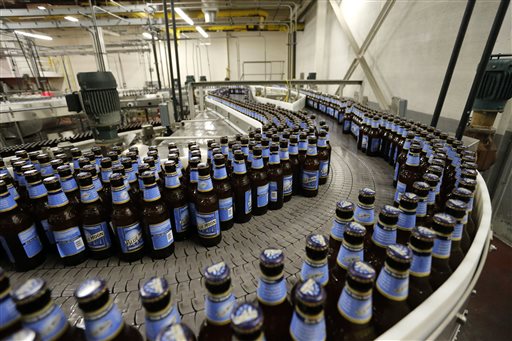In Rubin v. Coors Brewing Co., 514 U.S.476 (1995), a unanimous Supreme Court held that a federal ban on stating the alcoholic content on beer labels violated Coors’ First Amendment commercial speech rights.
The case was one of several Supreme Court decisions in the 1990s that increased First Amendment protection for commercial speech.
Ruling continued pattern of extending First Amendment protection to commercial speech
The Federal Alcohol Administration Act of 1935 prohibited beer labels from displaying alcohol content. Coors petitioned for a declaratory judgment that the ban was unconstitutional. The lower courts agreed.
Justice Clarence Thomas’s opinion for the Court continued the application of the commercial speech doctrine announced in Virginia State Board of Pharmacy v. Virginia Citizens Consumer Council, Inc. (1976).
The doctrine states that commercial speech — generally defined as speech that does no more than propose a commercial transaction — enjoys First Amendment protection but can be regulated under some circumstances.
The Court applied the test developed in Central Hudson Gas and Electric Corp. v. Public Service Commission (1980), which requires that government regulation of commercial speech that concerns lawful activity and is not misleading must:
- promote a substantial government interest,
- directly advance that interest, and
- be narrowly tailored.
Court not convinced restricting beer labels was necessary to achieve government interest
The Court agreed that the government’s interest in preventing a “strength wars” advertising or labeling campaign was substantial. Advertising and labeling that promoted the strength of beer “could lead to greater alcoholism and its attendant social costs,” wrote Thomas.
The Court was not convinced, however, that the ban directly advanced that interest and was no more extensive than necessary. Thomas noted that the very same act required labeling of alcoholic content on liquor and wine. It also allowed states to regulate whether alcoholic content could be disclosed in advertising.
This “unique and puzzling regulatory framework ensures that the labeling ban will fail to achieve [the prevention of strength wars].” Nor could the government produce any evidence that there was or had been strength wars promoting the alcoholic content of beer.
Court: Government could regulate alcohol content without speech restrictions
Finally, said Thomas, even if the case could be made that there was a direct connection between the regulation and the government interest, the regulation would fail because there were alternatives that regulated speech less extensively that could accomplish the same thing.
The government could directly regulate the alcoholic content of beer and not impose any speech restrictions, or it could prohibit marketing campaigns that emphasized strength. In his concurring opinion, Justice John Paul Stevens argued that the case should not have been decided using commercial speech doctrine and should have been decided using traditional First Amendment doctrine.
This article was originally published in 2009. Geoffrey P. Hull is a retired Professor Emeritus from Middle Tennessee State University.

